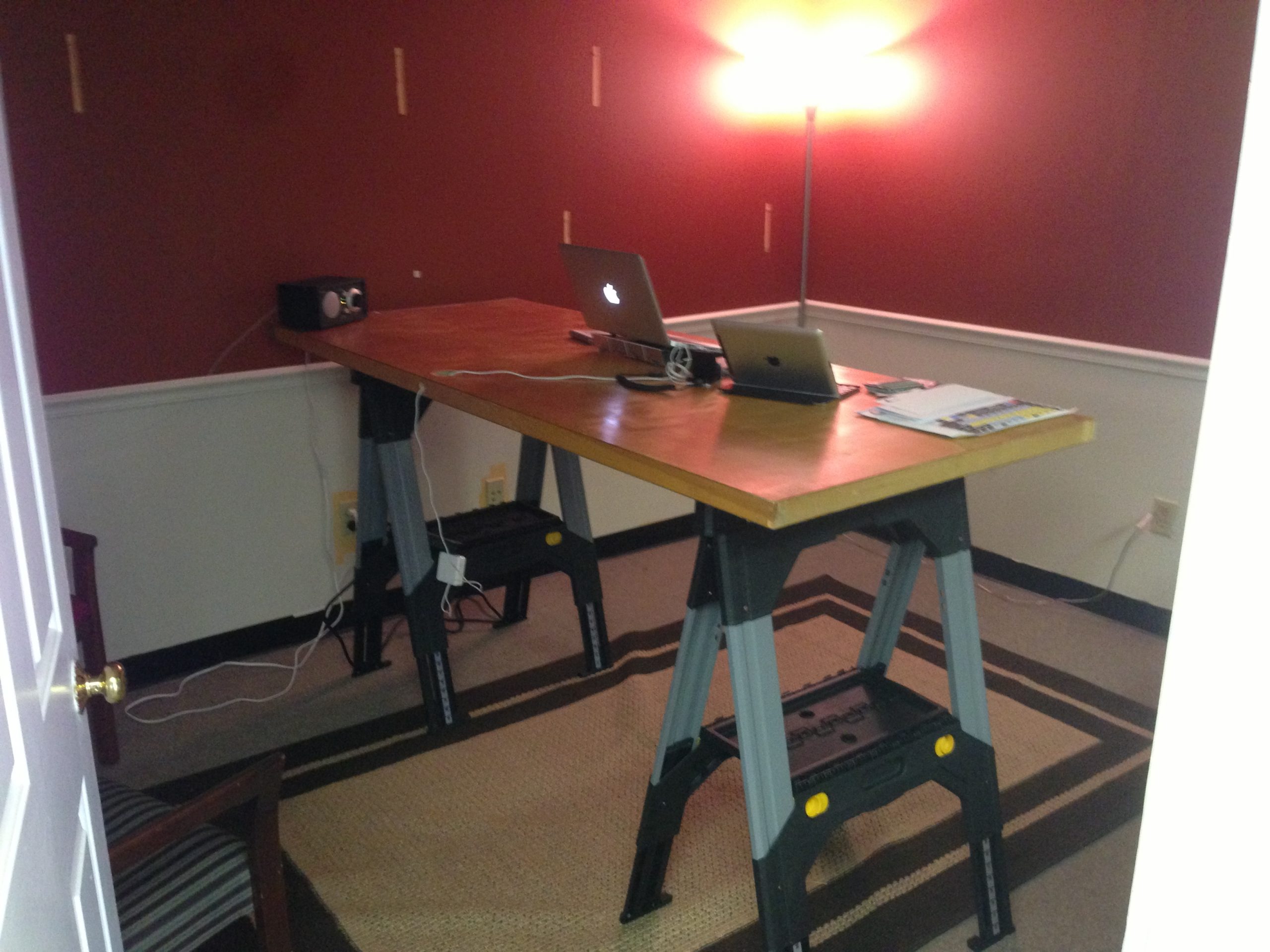
Sawhorse + Door = Get Sh*t Done
I ask These five questions in various contexts, but my primary use is interviews, where I’m the interviewee or interviewer. I have spent more than twenty years researching human behavior for experience design. This research spans many different industries, from convenience stores to pharmaceuticals. It has provided insights that led to these five questions being critical. These questions help in understanding and learning how humans think, behave, and operate in the world.

I want to explain why these 5 are chosen, and why they are in this order. I will also discuss what I believe can be learned by how humans respond or not to them.
Context, Nature, and Substance
I am curious. I want to understand more and more about my fellow humans. I am not a fan or follower of ‘standard’ or conventional interview questions. This applies to interviews. It is also true for 1/1s, 5 & 10 year 1/1s, and exit interviews. Additionally, it includes informational interviews and meet and greet sessions. This approach pertains to nearly all interactions you seek to understand, period.
Known folks are unknown humans; you can use these as conversation starters, etc. The questions, their sequencing, and follow-ups reveal much about humans. For example, fear is a driver in the human experience. Once you understand enough about fear, it tends to tell a story of its owner. This can elucidate thinking that goes beyond an interaction’s basics.
Curiosity, Understanding, Insight
Over the years, I have been incredibly curious about human behavior and its intricate nuances. This curiosity has sparked a profound interest in understanding our relationships with various key concepts. The pursuit of comprehension and exploration has become almost second nature to me.
In our interactions, how we perceive and interpret these fundamental concepts greatly influences our actions, thoughts, and decision-making processes. Consequently, I have found great fulfillment in delving deep into the intricacies of human behavior and our cognitive processes.
Through my experiences, research, and analysis, I have come to appreciate the nuances and complexities of the human psyche. Each interaction and experience can unlock a treasure trove of insights. These provide valuable knowledge. This knowledge can shape our understanding of the world.
By closely examining our relationships with these fundamental concepts, we better understand ourselves and others. It allows us to navigate the intricacies of human interaction with grace and empathy. It enables us to foster stronger connections, build meaningful relationships, and create a more harmonious society.
There are no wrong answers. Just dialog.
These questions are not gotcha oriented. They are not necessarily related to a specific job description, level, or title. Interviews are a little high stakes and stressful for nearly everyone. I struggle with interviewing being interviewed.
I came up with a relatively straightforward handful of questions. These questions open up conversation and foster a natural dialog. The dialog explores what a candidate thinks, how they approach a concept or question, and how they will respond.
I have been educated, enlightened, shocked, and encouraged by these reflections. Often, at the end of the conversation, folks note that having a ‘normal’ conversation about relevant ideas helps. Some off-topic divergence also reduces the anxiousness, fear, and nervousness about the interview itself.
Your results will vary. Letting folks have the floor to think and dialog is likely a good thing. There are so few moments of human connection these days. Each one is almost like a tiny moment of expression. It feels like a moment of freedom and achievement.
People come to these moments with tons of unknown, unknowable anxiousness, powerlessness, fear, excitement, hopes, ambition, etc. All the things. What if there was a 30-60-minute window where you two humans have a break?
Two avatars and some audio are used on Zoom or Teams. These tools help you learn about another human. This person may be a teammate with you in the trenches in the future.
Oh yeah, the questions, since you made it this far…
- 1. What are you most afraid of? You may get a qualifier, ‘in what context,’ I respond with that there is no right or wrong response. Human behavior is pretty straightforward on what fear is about in our lives as we have evolved.
- 2/3. This is a two-part question: What is the best part/worst part of your current or previous job or role? The sequence often matters here. Most of us are negative scanners. We look for the presence of problems and give them more brain space. We do this rather than noticing the absence of problems.
- 4. Imagine re-titling your current or previous job. How would that job title reflect what you did genuinely? Give folks a little time to think this through. Afterwards, follow-up discussions will explore how the alignment or gaps worked out for them in the past. There is perception/reality and mismatches between the role and themselves. Often, this generates a job description for a role they are interviewing for, and the experience uncovers some great questions/dialog.
- 5. Lastly, if you are leaving a company, you should give the board or senior managers an action during your session. Make sure the action is clear and achievable. Once shared, they must take that action. What would that be? You can wave a magic wand and mandate that one essential action on behalf of the company. What would that look like?

A Finally
This is a set of questions that could be used to start a conversation in any context. It can reduce the stress of interviewing. It also enables the interviewee to ask the same questions during their interviews. You can ask these of folks you are looking to work with. As humans post-pandemic, I have experienced a definite ability for candidates to feel empowered to create a dialog and learn.
Thanks for reading, and keep asking questions.
